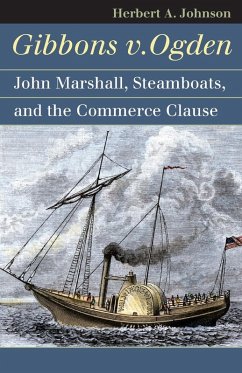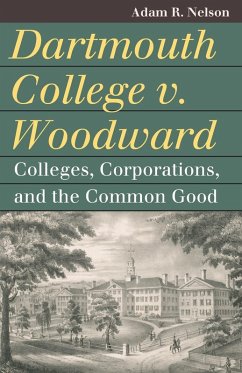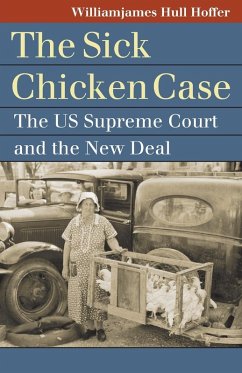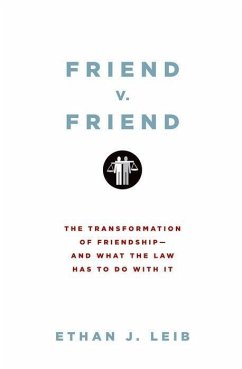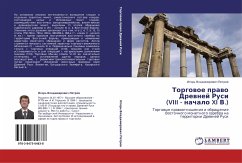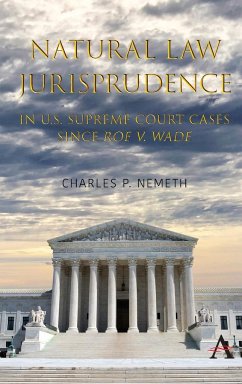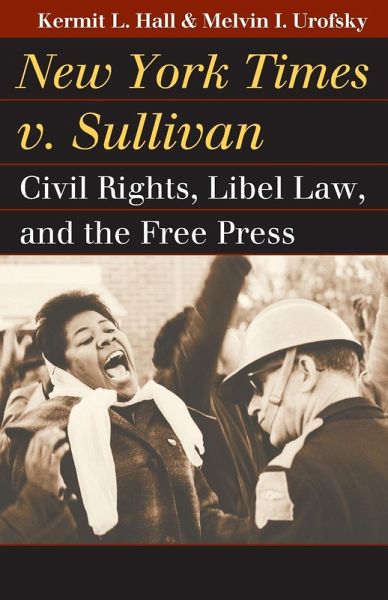
New York Times v. Sullivan
Civil Rights, Libel Law, and the Free Press

PAYBACK Punkte
12 °P sammeln!
Illuminating a classic case from the turbulent civil rights era of the 1960s, two of America's foremost legal historians--Kermit Hall and Melvin Urofsky--provide a compact and highly readable updating of one of the most memorable decisions in the Supreme Court's canon. When the New York Times published an advertisement that accused Alabama officials of willfully abusing civil rights activists, Montgomery police commissioner Lester Sullivan filed suit for defamation. Alabama courts, citing factual errors in the ad, ordered the Times to pay half a million dollars in damages. The Times appealed t...
Illuminating a classic case from the turbulent civil rights era of the 1960s, two of America's foremost legal historians--Kermit Hall and Melvin Urofsky--provide a compact and highly readable updating of one of the most memorable decisions in the Supreme Court's canon. When the New York Times published an advertisement that accused Alabama officials of willfully abusing civil rights activists, Montgomery police commissioner Lester Sullivan filed suit for defamation. Alabama courts, citing factual errors in the ad, ordered the Times to pay half a million dollars in damages. The Times appealed to the Supreme Court, which had previously deferred to the states on libel issues. The justices, recognizing that Alabama's application of libel law threatened both the nation's free press and equal rights for African Americans, unanimously sided with the Times. As memorably recounted twenty years ago in Anthony Lewis's Make No Law, the 1964 decision profoundly altered defamation law, which the Court declared must not hinder debate on public issues even if it includes "vehement, caustic, and sometimes unpleasantly sharp attacks on government and public officials." The decision also introduced a new First Amendment test: a public official cannot recover damages for libel unless he proves that the statement was made with the knowledge that it was false or with reckless disregard of whether it was false. Hall and Urofsky, however, place a new emphasis on this iconic case. Whereas Lewis's book championed freedom of the press, the authors here provide a stronger focus on civil rights and southern legal culture. They convey to readers the urgency of the civil rights movement and the vitriolic anger it inspired in the Deep South. Their insights place this landmark case within a new and enlightening frame. TABLE OF CONTENTS Editors' Preface Introduction 1. A Place in Time 2. "Lies, Lies, Lies" 3. Trial by Jury 4. "Let 'em See the DogsWork" 5. The Road to the Alabama Supreme Court 6. A New Game Plan 7. Briefing the Court 8. "May It Please the Court" 9. "Uninhibited, Robust, and Wide-Open" 10. Libel Law after Sullivan 11. Coda: Civility and Reputation Chronology Bibliographical Essay Index PRAISE "By connecting what most commentators have seen as a controversial freedom of press case to the contentious civil rights movement that produced it, Hall and Urofsky have provided new insights into both legal and political history. An excellent and accessible book about an important moment in American history."--Steven F. Lawson, author of Civil Rights Crossroads: Nation, Community, and the Black Freedom Movement "When the court declared that 'debate on public issues should be uninhibited, robust, and wide-open,' it said something profound, and this account properly focuses on that extraordinary finding. . . . A remarkably timely book."--Todd Gitlin, author of The Sixties: Years of Hope, Years of Rage "Will be of interest to a wide audience of students, scholars, and the general public." --Law and Politics Book Review "The authors look beyond the simple defense of segregation to analyze the case, and Alabama ibel law, in the context of southern conceptions of reputation, honor, and civic discourse. . . . The book is valuable for what it contributes to an understanding of Times v. Sullivan but also thejudicial system in general. . . . It will not only be of value to students of media law but also scholars of the civil rights movement as a whole." --American Journalism




